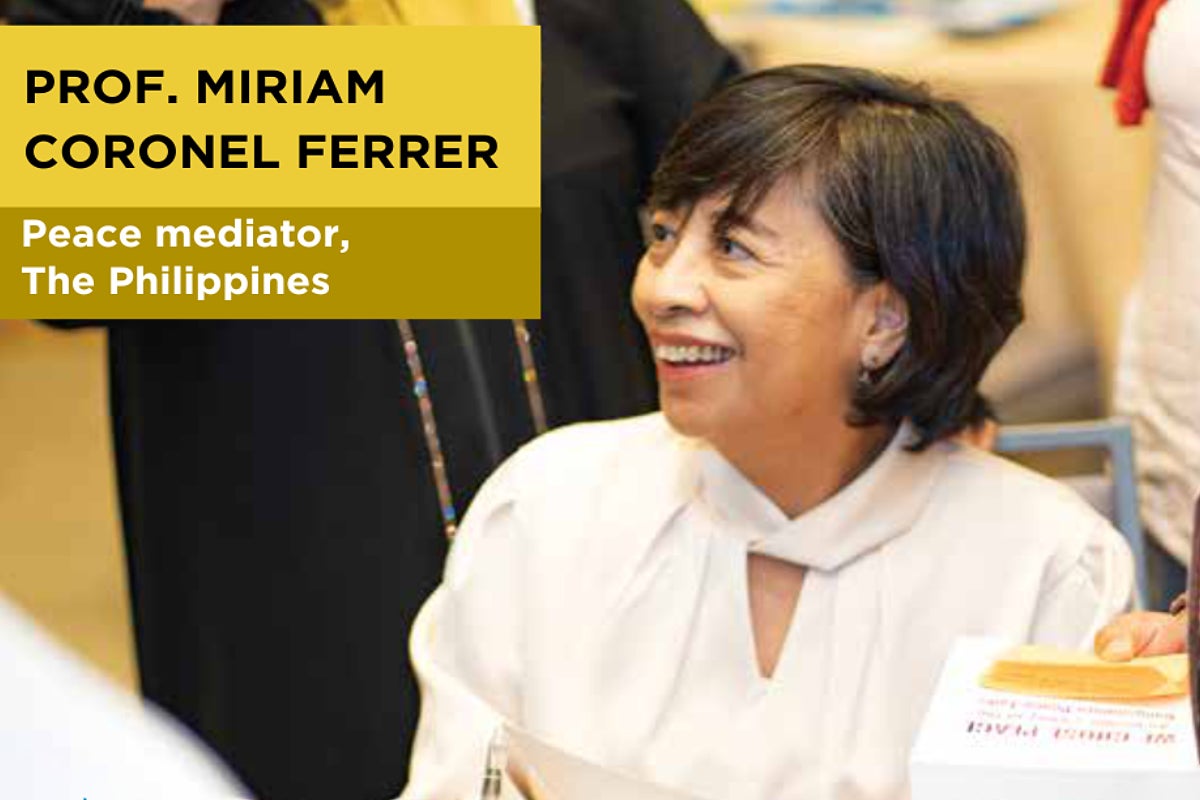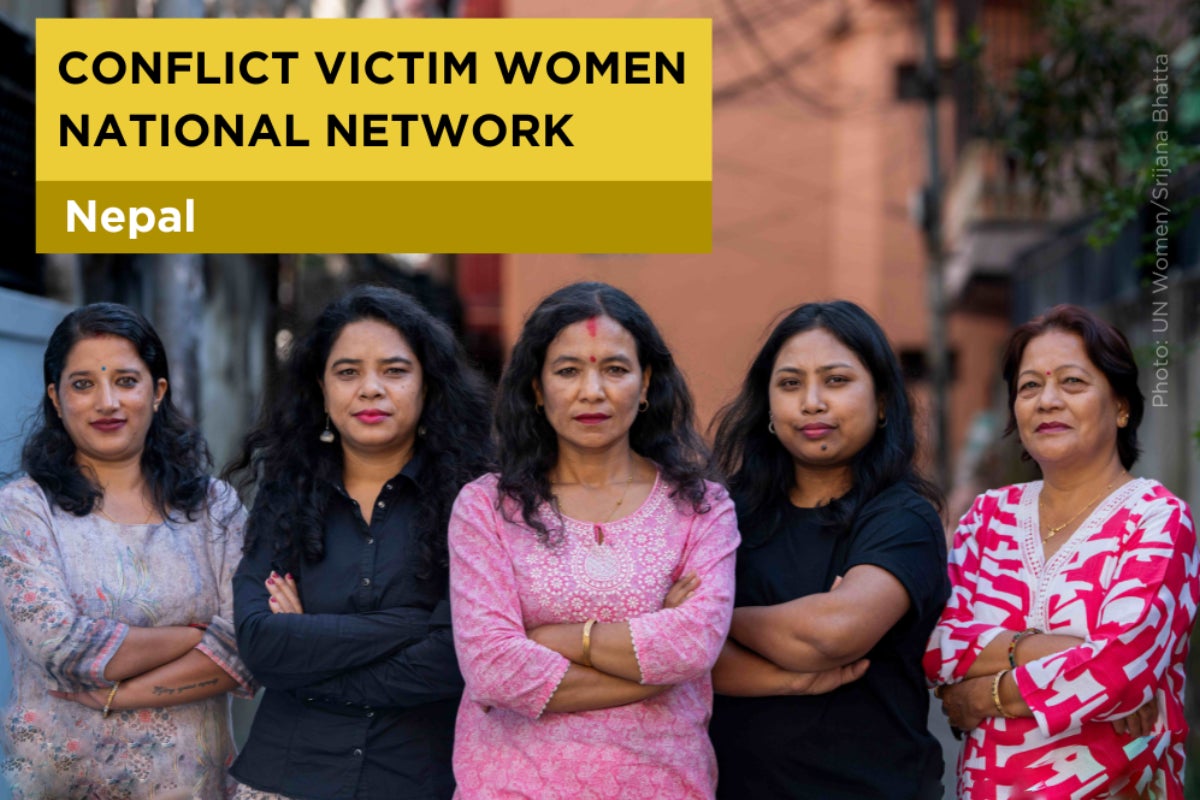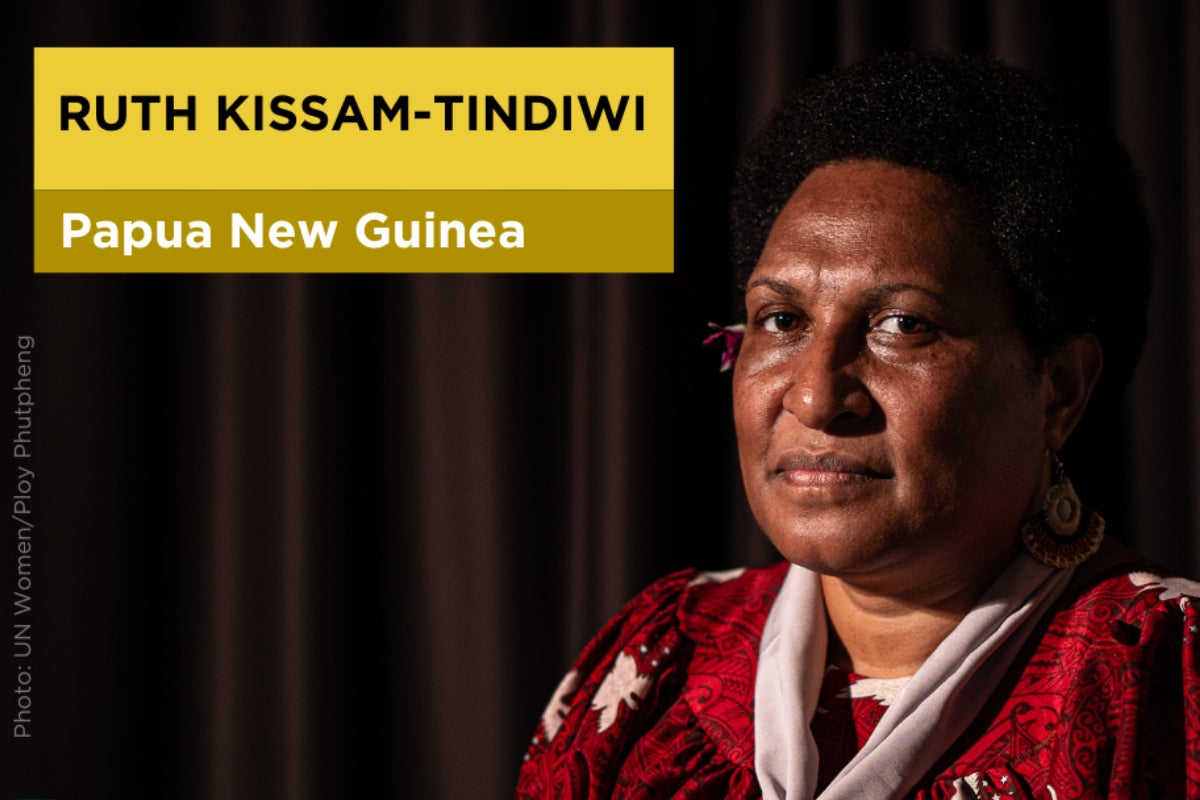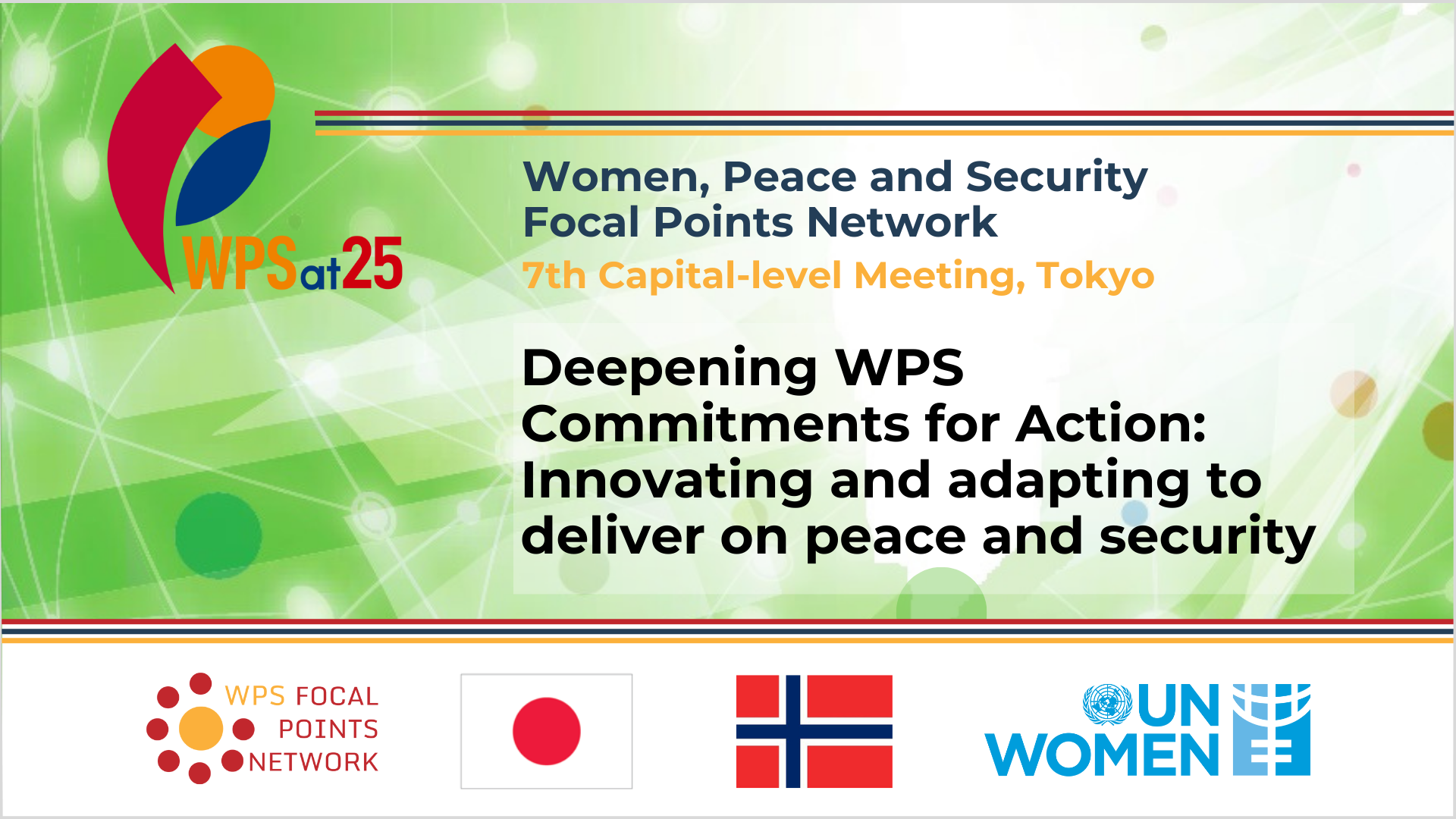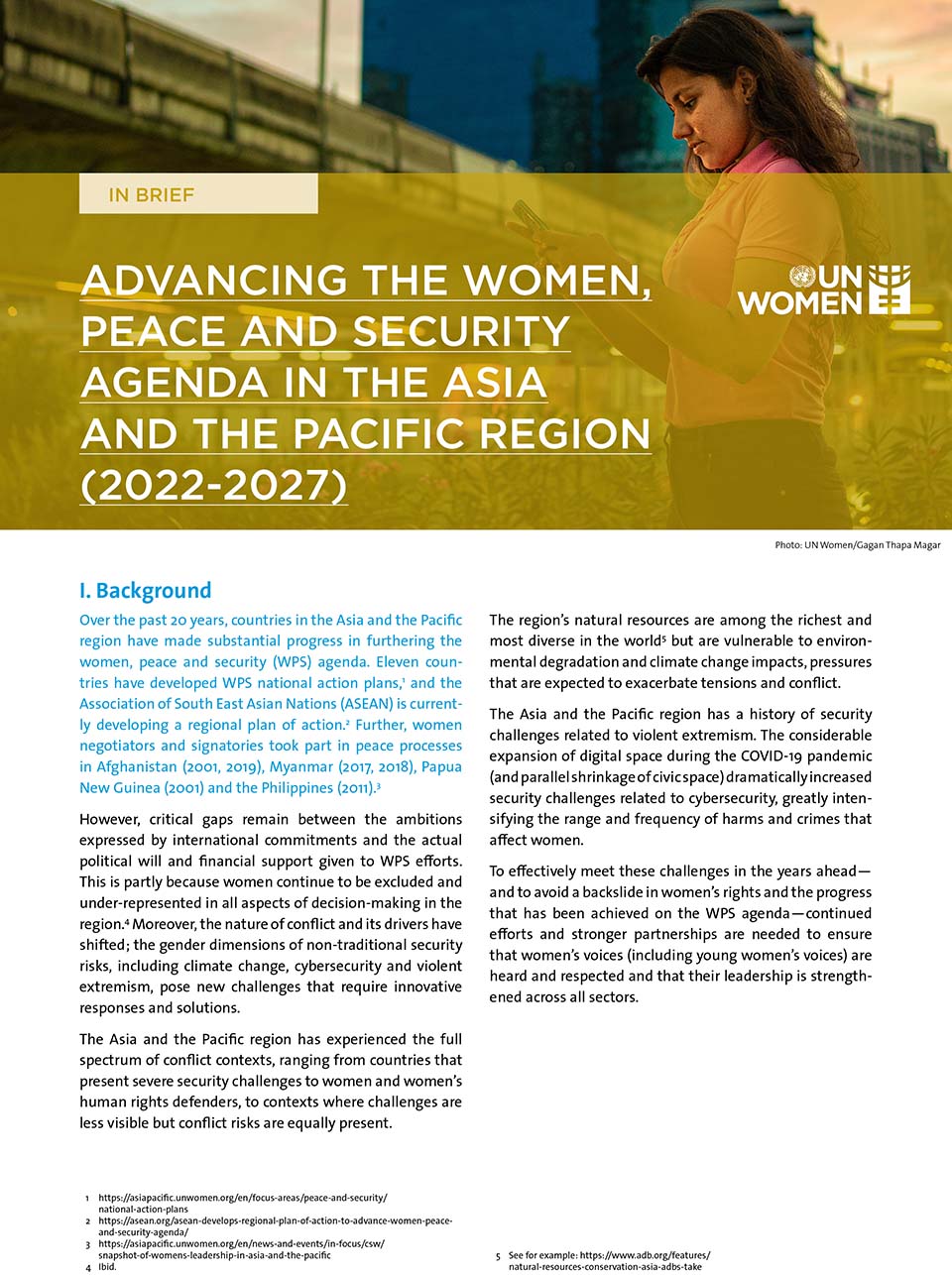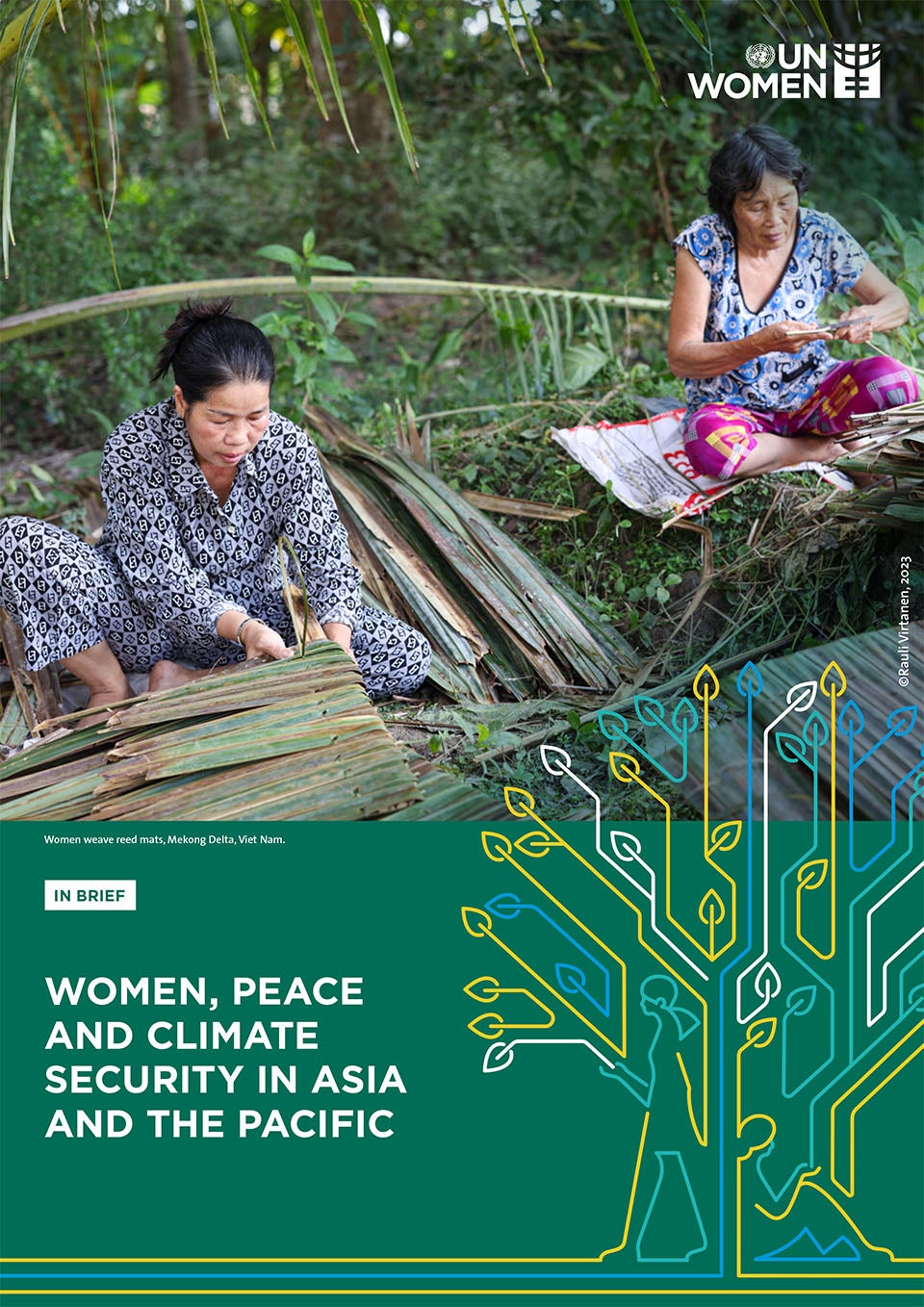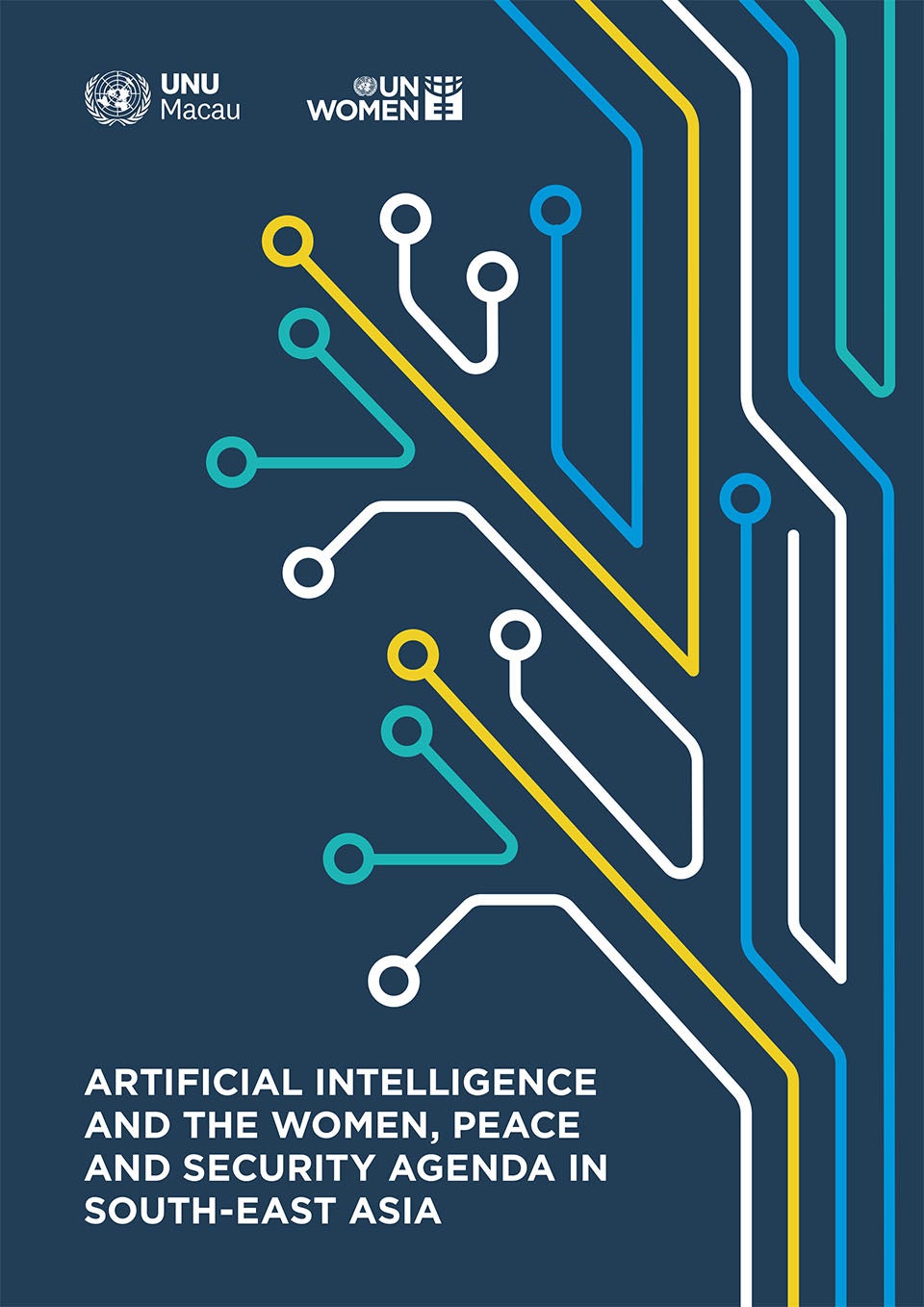In Focus: 25 years of the Women, Peace and Security Agenda in Asia and the Pacific
Date:
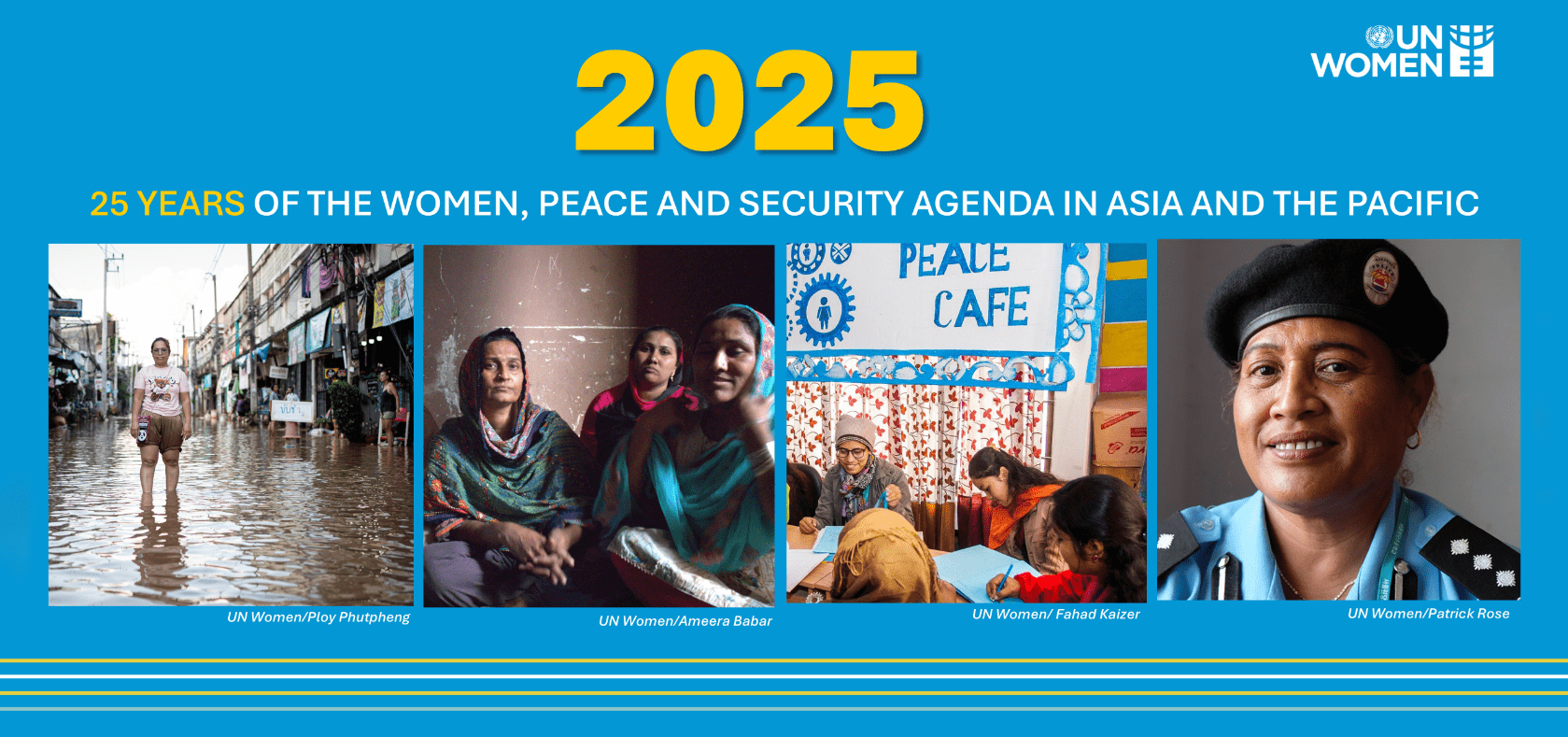
Calendar | Special Events | Youth Leaders | Ask an Expert | Videos | Resources
The participation and leadership of women – including young women – in conflict prevention, conflict resolution, peacebuilding and recovery is not only an essential element of sustaining peace, but also a proven approach for longer-term peace outcomes.
In 2025, UN Women invites you to mark 25 years of the Women, Peace and Security (WPS) Agenda in Asia and the Pacific. The WPS agenda recognizes that women are often excluded in security processes and emphasizes the long-term impact of women’s meaningful and equal participation in conflict prevention, peace negotiations, peace building and recovery after conflict or crisis.
In the current global peace and security context, with new and emerging threats and protracted humanitarian crises, UN Women’s efforts to support the implementation of the WPS agenda – in partnership with governments, civil society organizations and other key stakeholders – are more critical than ever.
The 25th anniversary presents a key milestone to re-focus on the objectives and benefits of the WPS agenda to international peace and security, reflect on progress, share knowledge and highlight stories of champions who are advancing the agenda throughout this region, often in challenging circumstances.
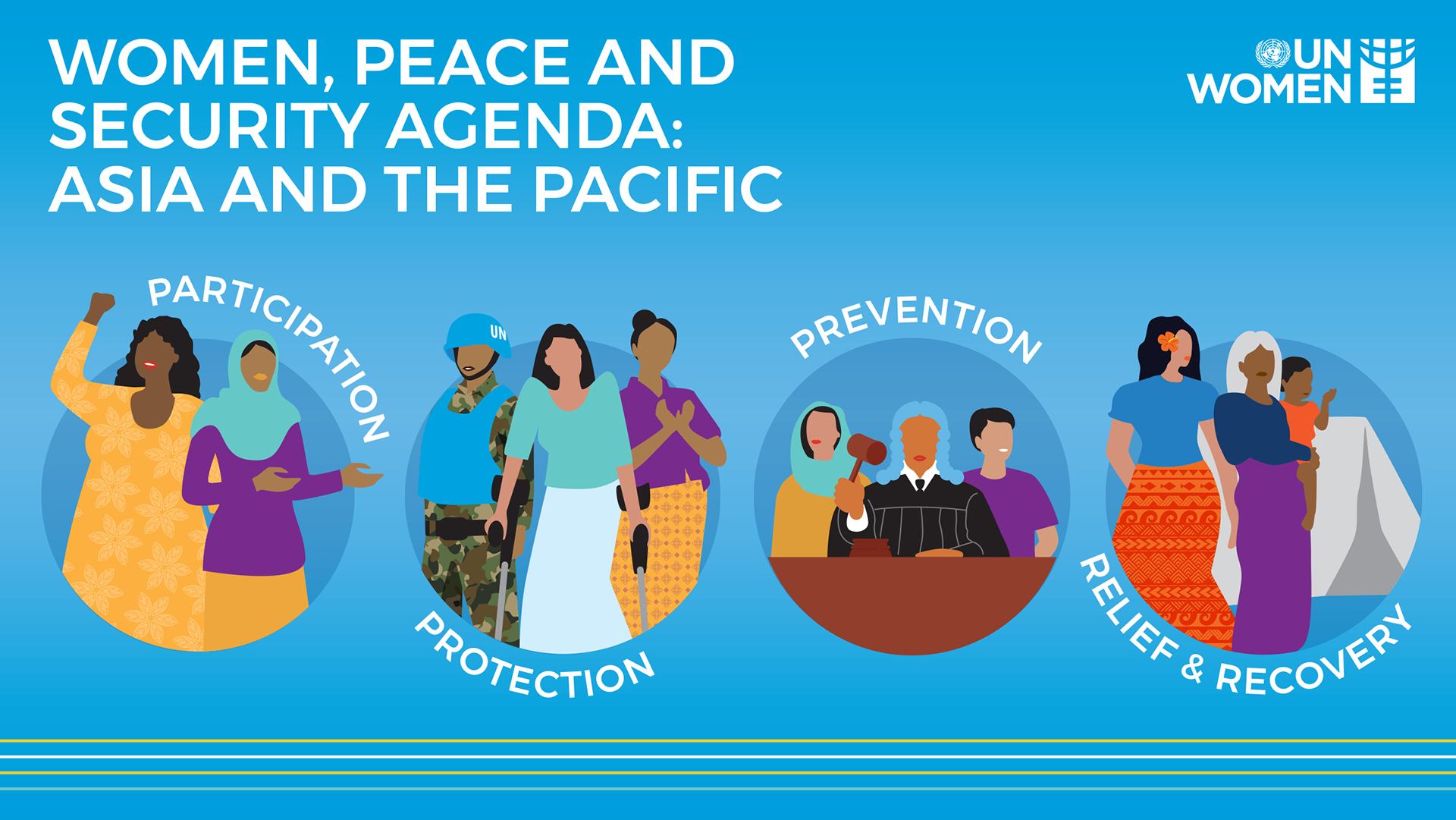
What is the WPS agenda?
The WPS agenda is based on UN Security Council Resolution 1325 (2000) and nine additional resolutions from 2000-2019. The WPS agenda was one of the inspiring achievements of the global women’s rights movement, recognizing that peace is inextricably linked with gender equality and women’s leadership. Transforming the ideals of these resolutions into actions and real change for women and girls and for peace and security is a priority for UN Women.
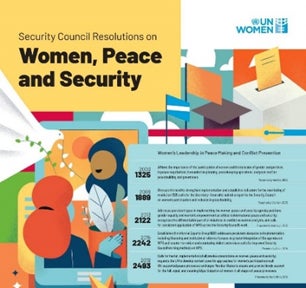
The WPS agenda has four pillars:
- Participation: Women’s equal participation and gender equality in peace and security decision-making processes at all levels.
- Prevention: Prevention of conflict and all forms of violence against women and girls in conflict and post-conflict situations.
- Protection: Women and girls are protected from all forms of sexual and gender-based violence and their rights are protected and promoted in conflict situations.
- Relief and Recovery: Specific relief needs of women are met, and their capacities to act as agents in relief and recovery are strengthened in conflict and post-conflict situations.
UN Women serves as the global custodian of the WPS Agenda in the UN system and supports Member States’ implementation of the agenda. UN Women provides technical assistance, capacity-building and strategic guidance to governments, civil society and other partners.
To date, 13 countries in Asia and the Pacific have adopted WPS National Action Plans. These plans demonstrate commitments at the highest levels in government and set out strategic approaches and action to advance women’s meaningful and equal participation in peace and security decision-making and processes. Additionally, ASEAN endorsed its first Regional Plan of Action on WPS in 2022. The Pacific region had developed a Regional Action Plan which ended in 2015.
Learn more: National Action Plans
Women, Peace and Security Agenda
WOMEN, PEACE AND SECURITY CHAMPIONS
UN WOMEN 2025 calendar: Profiling champions in Asia and the Pacific
Each month, meet champions across the region – individuals and organizations – who are advancing the participation of women, in all their diversity, in peace and security decision-making and processes at all levels.
SPECIAL EVENTS
Japan and Norway, as the 2025 Co-Chairs of the Women, Peace and Security Focal Points Network, are jointly hosting the network’s Seventh Capital-level Meeting in Tokyo, Japan, from 4-6 February 2025. This major event brings together more than 90 Member States and is supported by UN Women. Visit WPS Focal Points Network.
The Philippines hosted an International Conference on Women, Peace, and Security (IC-WPS) from 28 to 30 October 2024 in Manila. With the theme "Forging Collaboration and Convergence for Advancing Women, Peace, and Security" this was the first major event to commemorate the anniversary in Asia and the Pacific, and UN Women was a proud partner. Visit UN Women Philippines.
YOUTH LEADERS
In Asia-Pacific, young WPS leaders are bringing innovative solutions and inspiring positive change. Recognizing the specific expertise and needs of young women peacebuilders and their male allies, UN Women provides tailored support that enhances their opportunities to become changemakers and leaders, to mobilize and network.
Learn more about Gen-Forum 2024: Young Leaders for Women, Peace and Security in Asia and the Pacific
ASK AN EXPERT
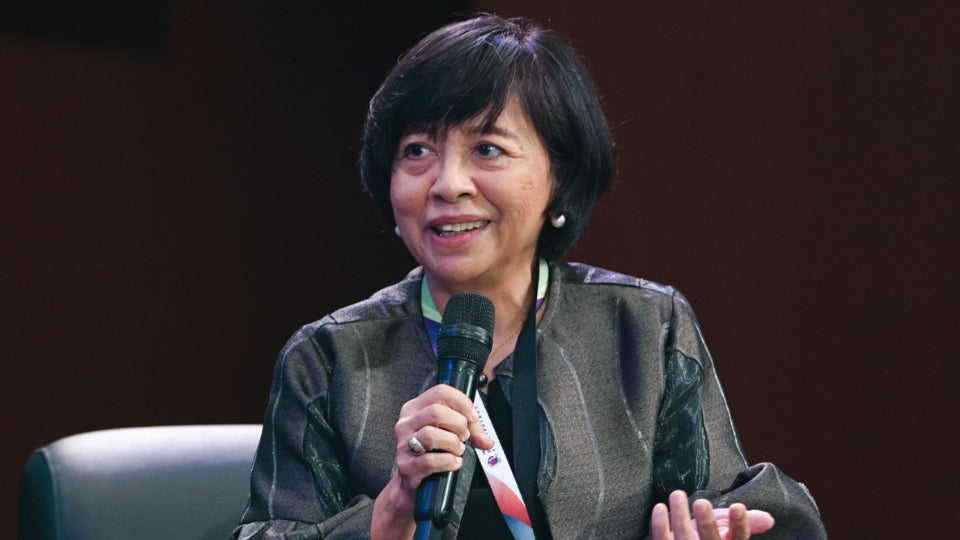
Prof. Miriam Coronel Ferrer: What are the characteristics of a good peace mediator?
“I think ‘empathy’ is number one; to really put yourself in the others’ shoes, to see them as human beings no matter how difficult because of the violence that has happened, or your own biases and prejudices. Because until you do that, you will not be listening to them.
‘Listening’ is the second. You listen because you try to understand and see it from their perspective. Only then do you get to the core of the problem, and that's where you also find the solution. Otherwise, you might be addressing only the surface manifestations, or you might be swamped with all the hostility that emanates from the other side and you feel that can't trust them and nothing will come out of it, and so you give up. So, number three is ‘never give up’.”
Prof. Coronel-Ferrer features in the UN Women 2025 calendar marking 25 years of the Women, Peace and Security Agenda in Asia and the Pacific. Read more
VIDEOS
This video message from UN Women Executive Director Sima Bahous was played at the International Conference on Women, Peace, and Security (IC-WPS) organized by the Philippines from 28 to 30 October 2024 in Manila. Watch the video
UN Women's Policy Advisor on Governance, Peace and Security for Asia and the Pacific, Norul Mohamed Rashid, explains the links between new approaches to policing and the Women, Peace and Security Agenda. Watch the video
RESOURCES

